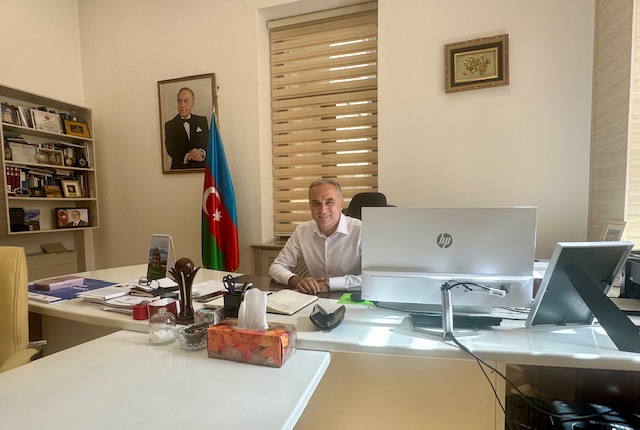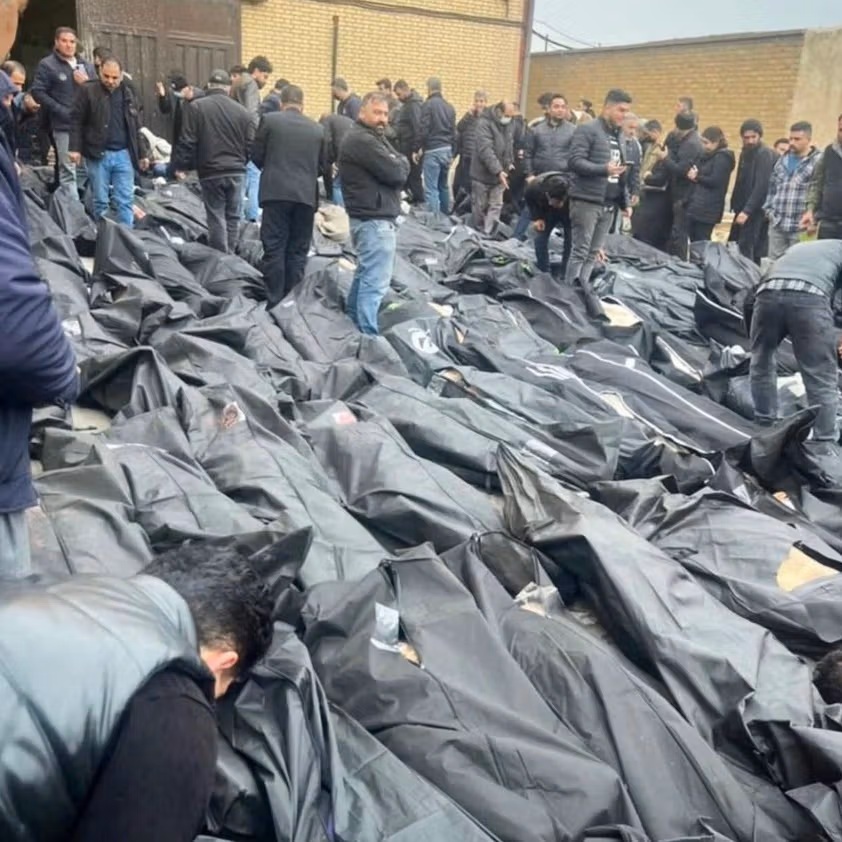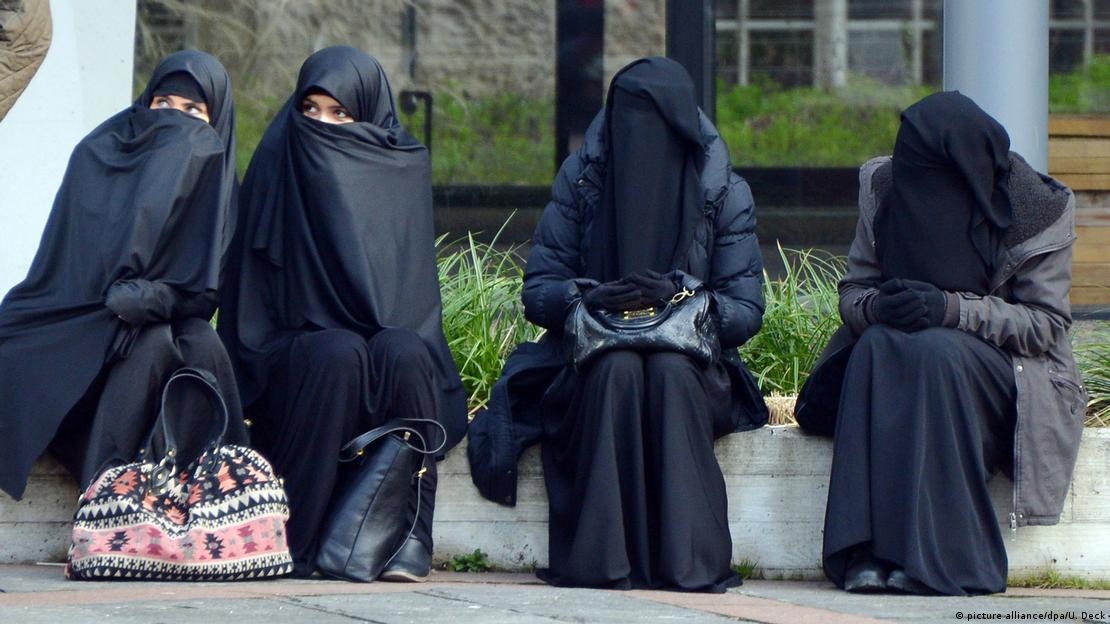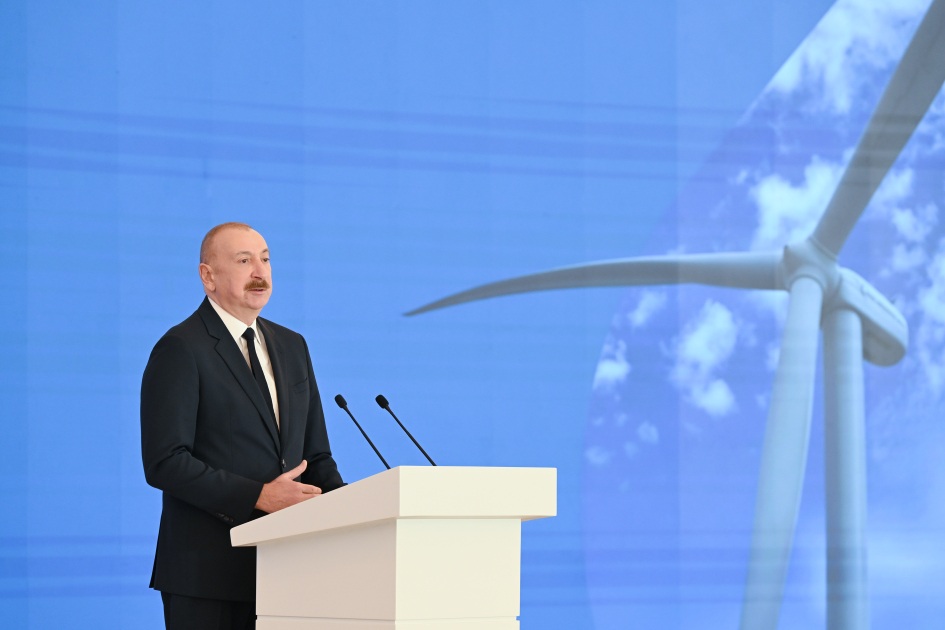
Azerbaijan is often negatively depicted in the Western mainstream media by individuals who have never visited the country or understand its complicated and dynamic history. The Liberum had an exclusive interview with Dr Farid Shafiyev, Baku's most prominent International Relations think tank chairman. “What we are accused of is disproportional and blown out of perspective.”
By Arthur Blok
“We are a pair of dice joined together in the game of fate. We never get along, although we've rolled together for hundreds of years.” This segment of a poem by the late award-winning Azerbaijani poet Mammad Araz beautifully summarises the history of Azerbaijan and its strategically challenging geographical location.
Located in the South Caucasus region of Eurasia, the country connects Western Asia and Eastern Europe, a key route connecting two major global economies, China and Europe. Despite its complexity and turbulent modern history, the country’s leadership, led by President Ilham Aliyev, has transformed it into a regional (economic) success.
Aliyev is best described as a president who understands how the game of international relations is played. When taking office - after his father Heydar stepped down in 2003 - he inherited a country with numerous security challenges in border regions and 10s of thousands of refugees kicked out of Armenia and the Karabakh region of Azerbaijan.
This is something of the past; in the years that followed, the country underwent a metamorphosis, and the nation set the bar for the region. Earlier this year, the last foreign (Russian) troops left Azerbaijani soil to consolidate true independence.
Dr Farid Shafiyev is a patriot who has served his country in various prestigious positions. He was a member of the Permanent Mission of Azerbaijan to the United Nations in New York from (1998 to 2001) and the former ambassador to Canada and the Czech Republic. He is known as an expert on his country’s international relations and is always ready to find time to share his views.
From his prestigious office in a stately building in the capital, Baku, Shafiyev elaborated on Azerbaijan’s geopolitical complexity and regional power struggle. “Despite the complexity of our region, we succeeded in the past two decennia to have good and allied relationships with neighbours Turkey, Georgia, and Russia”, he said.
This contrasts with the complicated relationship with Iran, with whom it shares history and culture. “Several problematic issues remain today. On the other hand, we have Armenia, with which we had a war and don't have a peace treaty”, Shafiyev added.
Nagorno-Karabakh
As mentioned earlier, Azerbaijan struggled for years after the first Nagorno-Karabakh war (from 1988 to 1994). The battle, in a region of Azerbaijan covering the southeastern stretch of the Lesser Caucasus Mountain range, resulted in over thirty thousand casualties and hundreds of thousands of refugees.
After a 44-day blitzkrieg (launched in late September 2020), the Azerbaijani army successfully recaptured the region, which accounts for roughly 20 per cent of the geographical area. The victory resulted in a wave of national pride and ended a troubled path the country was forced to take after the fall of the Iron Curtain.
After the Soviet Union collapsed, the largest country in the southern Caucasus faced several internal challenges. Besides economic devastation, it struggled with the internal political chaos of the political transition. Political instability peaked between 1992 and 1993: Baku witnessed five governments.
Shafiyev: “There was a new government every three months. It was an internal power struggle. It started with a communist government, followed by the opposition, who had to leave a few months later. Fighting on the capital's streets was turbulent, especially in 1993. This status quo lasted until 1995.”
In that year, the country foiled a coup d'état attempt by members of the Azerbaijani military led by Colonel Rovshan Javadov, who was also the chief of a special police unit.
Shafiyev: “These events were very detrimental to our territorial integrity. Another pivotal factor was the bad relationship with Russia then and their assistance to Armenia. All these events must be considered if someone wants to understand our system with a solid and centralised government. Stability brought us back our territorial integrity.
This is a point to be considered when analysing Baku’s foreign policies. It explains how the nation survived in all these troubled waters: “There is a lot of criticism from European media about the state of democracy in Azerbaijan. They forget where we came from; our government provides the stability we have right now.”
As if these challenges are not enough, the country also suffers from insurgents in the border area with Iran. Shafiyev: “We believe that there were some Iranian agents (and still are) to undermine the state.
Huseyniyyun
Baku’s close strategic partnership with Israel, Iran’s arch-foe, sought to deter radical Shi’ite influence stemming from Iran. Who, in turn, sought to extend this network into Azerbaijan and make inroads into the local Shi’ite community through religious schools and, more recently, social media tools. In 2013, Iran established the Huseyniyyun – the Islamic Resistance Movement of Azerbaijan – to create a powerful proxy organisation in the Caucasus like Lebanon-based Hezbollah or Hamas in Palestine.
Shafiyev emphasised that Iran is eager to dismantle the secular statehood, which is precious to many. “Our centralised government provides security and stability. Of course, it is easy to find deficiencies or problems in this system, but you must consider our complex geopolitical environment.”
Shafiyev continued: “The only way to guard terrorists and Islamists is to ensure a strict law enforcement system. I think it's part of being a nation in this area of the world. A Scandinavian style of democracy would cause the state to collapse.”
He hits the nail on the head. If one looks at what happened in Middle Eastern countries after the Arab Spring or in Afghanistan, it is evident that one cannot copy the Scandinavians to other parts of the world. It just does not work.
Peace with Armenia
In a few weeks, on November 10, Baku will commemorate its victory over Armenia in Karabakh. Peace negotiations have been ongoing ever since but have not resulted in a peace treaty.
Shafiyev: “If you look at it from a state perspective, eventually, we must sign an agreement. It is our neighbour. But it is not easy. It was a very bloody conflict and bloodshed on both sides. I don't think that can be resolved so quickly.”
He added: “On the other hand, it is also simple; ‘I respect your territorial integrity, you respect ours, and we sign a document. Before we arrive there, certain things should be changed, like the constitution of Armenia, which states that Nagorno-Karabakh constitutes part of their sovereignty. That is, for us, a breakpoint.”
The problem is difficult to solve, indeed. How should we deal with the refugees on both sides? Various territories in Armenia where Azerbaijanis lived are no longer inhabited by them. They were all expelled, just like many Armenians who lived in Azerbaijan.
Shafiyev: “We're talking about 300,000 Azerbaijanis. While in Karabakh, there were about 100,000 Armenians. This is a complicated issue. Sometimes, in European media, we read that Armenians should be returned to Azerbaijan because they are entitled to live there. Why do they speak about only one ethnic minority? It's counterproductive.”
Azerbaijan is often depicted negatively in the Western media, especially since the victory in Karabakh. Shafiyev: “There is a well-organised propaganda, especially since 2020. They use a vast network of journalists, academicians, and even politicians. I don't deny that Azerbaijan has problems; every country faces certain issues. What we are accused of is not proportional and blown out of perspective. That is not unique to Azerbaijan.”







Thank you for delving into this complicated geopolitical issue for your readers.
Очень разумное объяснение